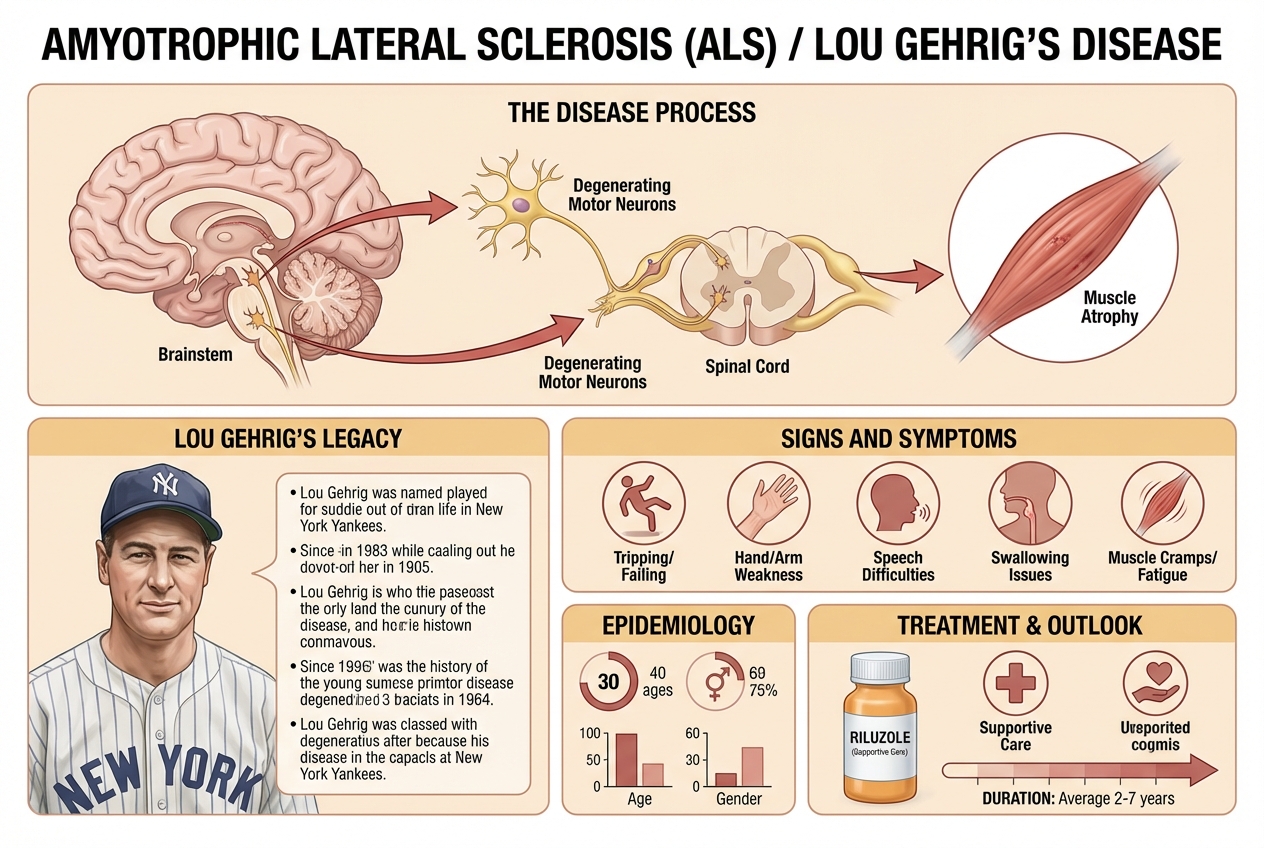
**Lou Gehrig's Disease**Amyotrophic lateral sclerosis (ALS) is a well-known motor neuron disease. These diseases are chronic and progressive, affecting the nerves that deliver electrical impulses to muscles, which are essential for bodily movement.**LOU GEHRIG'S LEGACY**The full name, amyotrophic lateral sclerosis, is often shortened to ALS. In North America, it's commonly called "Lou Gehrig's disease" after the legendary baseball player who succumbed to it. Gehrig played for the New York Yankees for 14 seasons, never missing a game, totaling 2,130 consecutive games, which earned him the nickname "iron man." Born in 1903, he passed away in 1941 at 38 years old. His life story is depicted in the film "Pride of the Yankees."**EPIDEMIOLOGY**ALS typically appears in middle age, particularly between the ages of 40 and 70. It is about 1.5 times more common in men than in women. In the United States, around 20,000 people live with ALS, and approximately 5,000 new cases are diagnosed annually.**THE DISEASE PROCESS**ALS involves the gradual deterioration of specific nerve cells in the brain and spinal cord that manage movement. As these motor neurons degenerate, the muscles they control weaken and atrophy, leading to significant physical decline. The exact cause of this degeneration remains unknown.**SIGNS AND SYMPTOMS**ALS symptoms vary depending on which muscles are initially affected. They may include frequent tripping and falling, loss of motor control in the hands and arms, difficulties with speech, swallowing, and breathing, persistent fatigue, and severe muscle cramps.**TREATMENT**Currently, there is no cure for ALS, nor any proven treatments to halt or reverse its progression. The FDA-approved drug riluzole can extend the life expectancy of ALS patients. Supportive treatments are available to manage symptoms and improve quality of life.**OUTLOOK**ALS is a progressive and ultimately fatal condition. Death often results not directly from ALS itself but from secondary illnesses, such as infections, that occur due to the body's weakened state.**DURATION OF DISEASE**The life expectancy for someone diagnosed with ALS is typically between 2 to 7 years, with an average lifespan of about 5 years post-diagnosis.




